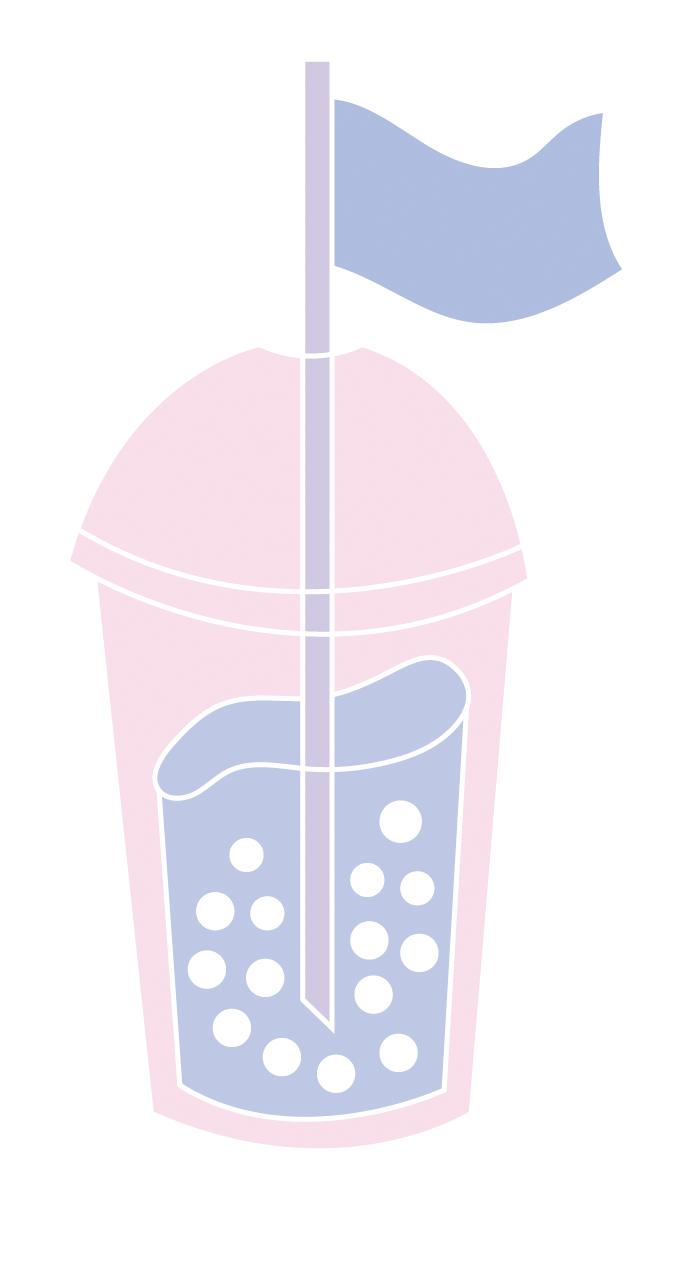
9 minute read
Memes, Misogyny and Medusa (and other Classic Tales of Twitter Trolls) | Isobel Golding
Memes, Misogyny and Medusa (and other Classic Tales of Twitter Trolls)
by Isobel Golding
mimēma ‘that which is imitated’
A Greek word taking on a classic trend of incorporating memorable tales of terror and distraction.
Western culture has a long-standing issue with strong women. Portraying women as strong often results in painting them as the villain to man, such as the iconic Medusa, an antagonist from Greek mythology. This has been seen throughout modern western history, and as the wealth and the availability of political imagery have grown, thanks to the likes of Twitter and Instagram, this has only been expedited.
Memes are a symbol of the values of the community they are shared in. The humble UNSW bin chicken holds no significance to those who do not have any knowledge or value in the shared understanding of its origins. Yet for many memes, especially those aimed to be a mockery of those in the public eye, the shared understanding of its origins holds less significance; simply a vague idea of the tone is all that must be communicated. In particular, imagery, allusions and themes are taken from classics and blended into modernday shitposts, politically persuasive memes and public discourse - most prominently about women and leadership, and the simple dichotomies of good and bad.
The original mythology of Medusai, an infamous character who has been reimagined in modern interpretations, was a beautiful mortal who served alongside the Goddess of knowledge and wisdom, Athena, and vowed to remain a virgin while serving Athena. However, she had an illicit affair with the god Poseidon and when Athena discovered this, cursed her by taking away her beauty. Her beautiful hair turned to snakes and her face became so ugly that whoever looked at her would turn to stone. Later on, the Greek hero Perseus retrieves her head as a gift for King Polydectes. Perseus beheading Medusaii has become an iconic image from mythology and has since been reimagined throughout modern history as a representation of man’s supposed power over women.
The essay-manifesto Women and Power iii highlights the connection between classics and modern online commentary. ‘The first recorded example of a man telling a woman to shut up’, Beard explains in the first chapter, ‘is Telemachus telling Penepole in Homer’s Odyssey that her voice is not be heard in public’ connecting this with how women in the public light, especially those prominent on social media, are treated compared to their male counterparts. Her analysis exposes how the mechanisms used to silence women online are inherently a part of western culture and can be traced back to the ideas and themes of the classics.

SOURCES
i Brittany Garcia, “Medusa,” World History Encyclopedia, accessed March 3, 2021. https://www.ancient. eu/Medusa/. ii “Medusa in Ancient Greek Art,“ The Met, accessed February 28, 2021. https://www.metmuseum.org/toah/ hd/medu/hd_medu.htm. iii Mary Beard, Women and Power (London: Profile Books, 2017). iv ”The Contrast,” The British Museum, accessed February 26, 2021. https://www.britishmuseum.org/ collection/object/P_J-4-50. v Douglas Haddow, “Meme warfare: how the power of mass replication has poisoned the US election,” The Guardian, November 4, 2016. https://www.theguardian.com/usnews/2016/nov/04/political-memes2016-election-hillary-clinton-donaldtrump. vi Joel B. Pollack, ”The Naked Hillary Clinton Statues You’ve Never Seen – And Lived to Tell,” Breitbart, August 21, 2016. https://www.breitbart.com/ local/2016/08/21/naked-hillaryclinton-statues-youve-never-seen/. vii ”Violent Misogyny, white nationalism, and anti-Clinton apparel.” Pharos, accessed March 1, 2021. https://pages.vassar.edu/ pharos/2018/01/18/antiquity-insupport-of-violent-misogyny-in-anticlinton-apparel/.
The use of these characters and ideas to vilify publicly disliked entities, whether that be national enemies or online personalities, has a wrought history in mythology yet continues to be valuable to current social ideas. The example above shows ‘The Contrast’, which immortalises the religious, moral and national prosperity of Britain, shown through the imagery of justice and military and naval power. This is directly contrasted to that of France, which is embodied in a reinterpretation of Medusa, a villainous murderer who is innately associated with national ruin. These themes from the 18th century continue today, highlighting the continuous use of Medusa’s storyline as a tool to create division and public hatred towards the latest public villain.
The 2016 US election saw this exemplified like never before. The political influence of images has always been a contributing factor in who people vote for, yet the culmination of mass-produced political memes, often incorporating classical mythology, increased consumption of media online. The 2016 elections heavily featured mythology and ideas from the classics, such as the recurring image of the two candidates, Donald Trump and Hilary Clinton, portrayed as Perseus and Medusa which lent into the ‘nasty woman’ characterisation of Medusa. These ideas, which thrive on a fast understanding, not a good understanding, and a lack of background information have the potential to undermine the general understanding of the complicated topicv. The misuse of age-old stories to do so has also misguided the general understanding of the mythology itself.
Conservative political commentator Joel Pollack, when examining the rise in naked Trump statues throughout the US in 2016, commented ‘No — the reason that no naked Hillary Clinton statues have appeared in public — thankfully! — is simply that anyone who saw them would instantly turn to stone.' vi The direct reference to Medusa refers to the evil quality of the mythological figure and highlights the social value of beauty both in antiquity and in contemporary politics.
The process of reimagining classical characters as modern public figures might seem to be an over-exaggeration of a cultural phenomenon, of reading ‘too far’ into memes and political cartoons as an influential way of communicating. However, this modern reinterpretation of mythologies brings ideals and values of an ancient society to our modern society, it devalues women and their power to that of a villainous status. As such, Western societies have successfully vilified powerful women, from the classical Roman mythologies to modern Twitter trolls, consistently silencing women through shame.
Processing Grief Through a Zoom Screen
by Ava Lacoon-Robinson

Reflections from the night of February 18th 2021 on my bedroom floor
Tonight, I went to my fifth zoom funeral in the past six months. It was for a loved one I lost to COVID-19 in the United Kingdom. When I ended the call on the fourth funeral, I thought it would be my last. But it is only getting worse. I had to watch as one of my parents mourned their father and also their best friend through a television screen in our lounge room within half a year.
At my workplace, I deal with customers lecturing me about masks, trying to convince me that this pandemic is a hoax. But I know they think that because they are the lucky ones. They have not had the traumatic experience of watching livestreams of their friends and family crying, unable to sit on the pews with them and hold their hands. Because if they did, they would not argue with a retail worker over basic public safety.
Last year, my mum created a beautiful shrine in our kitchen to all the people we have lost in an attempt to grieve properly. We have now had to adorn two tables, each with pictures, lit candles and burning incense. We are clutching at straws for any comfort in rituals. Our beloved friend, who has also just passed, encouraged my family to collect the ash from the incense we burned for my grandfather and scatter it into the sea.
This is not something I would wish on my worst enemy. No one should have to rely on the Internet as their only connection to closure and grieving. There is no time to be filled with warmth while sharing memories of the deceased. When the live feed is cut, you are once again reminded that you are sitting on the floor of your home, left with nothing but damp tissues.
Throughout the service you find yourself translating your grief into frustration and anger towards the other people viewing via zoom. You are infuriated that people could be so inconsiderate as to forget to mute themselves, and block the only sound channel from the live cast of the ceremony. You find yourself agitated because you can see another person is lying down on their bed eating snacks, something which feels inherently disrespectful to the grieving family. It’s an internal battle and incredibly wrong to judge each other’s grieving processes, especially in a traumatic time. I hate that I found myself enraged at an 80-year-old woman for forgetting to mute her microphone. How is she meant to function when she is mourning her childhood best friend without anyone to provide her physical touch or comfort? I know this because my grandmother is in the process of mourning her husband of 30 years alone. Everyone is too worried to visit her, infect her and potentially lose her too. It is a tug of war between comfort in the present and preventing another funeral in the future; its gruesome but it’s what runs through all our minds.
In England right now, the government only permits thirty people to attend a funeral, or less for those who died from complications as a result of COVID-19. I have been privy to many conversations of family members trying to decide who is the ‘most’ deserving to attend a mutual loved one’s funeral. Funerals are limited to no more than forty minutes. It is hard to avoid the guilt of cutting the celebration of a loved one’s life short, as COVID-19 did the same to them.
There were so many deaths in the UK, that on the 18th of February 2021, the national health service listed COVID-19 as the cause of passing on 361 death certificates that day. When I talk to my friends in the UK, many of them have experienced the same losses. But no one in Australia seems to understand the everyday reality and anxiety of having loved ones in the UK.
It’s scary thinking about the future and when my next zoom funeral will be. Who else won’t be at the airport gate when I eventually go back to the UK, if I ever do?

Ava is a 2nd year Fine Arts/Arts student, who dips her toes in creative direction, styling, photography and writing when she isn’t running around fulfilling her duties as the 2021 UNSW Queer Officer. If you need her, you’ll likely find her at a drag shown on Oxford street on a Thursday.
Follow the author on Instagram @avalacoon







